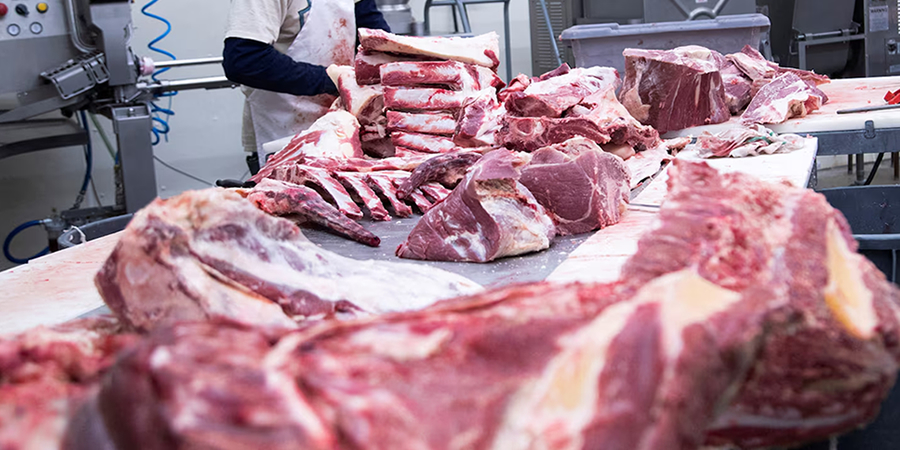July 22, 2024
Beef processing expansion in southern Australia drives national slaughter increase

Significant increases in beef processing capacity in the Australian states of Victoria, South Australia, and southern regions of New South Wales are contributing to this year's expanding national slaughter rate, currently at around 140,000 heads per week, Beef Central reported.
Recent weekly slaughter statistics show that a disproportionate share of the increased national throughput is coming from southern states.
For instance, Victoria's throughput last week was up 60% compared with the same week last year, representing an additional 8,400 heads per week. The two weeks prior saw increases of 43% and 59%, respectively, over the same weeks a year earlier.
In South Australia, the trend is somewhat more erratic, but kills for the week ended 5 July were still up 51% on the same week last year.
In contrast, Queensland's processing expansion compared with a year ago has been much more modest. Over the past three weeks, processed numbers were up 14%, 17%, and 15% compared to this time last year. Nevertheless, Queensland still accounts for around 45% of the national weekly kill.
Southern processor cattle buyers are currently struggling to find adequate numbers locally and are purchasing cattle from Queensland and even the Northern Territory in record numbers to supplement their kills.
Since early last year, at least six large beef processing upgrades, refurbishments, or repurposing projects have been underway in a region stretching from eastern South Australia, through Victoria, and into southern New South Wales. Some projects are completed, others have finished their first stages in a multi-stage process, and some are still a little way off.
Several contacts noted that this is not all necessarily 'new business.' Many of these plants had not operated for some years due to factors such as low southern livestock supply, poor trading conditions, or fire damage.
Australian Meat Group has commissioned its dramatically upgraded Cootamundra abattoir on the NSW southwest slopes. Coota is currently processing around 500 heads per day since being commissioned earlier this year. The aim is to grow to 1,000 per day or 5,000 per week, though that goal is still some way off. Prior to its closure in 2018, Cootamundra typically processed around 200-250 heads a day.
Thomas Foods International is gradually increasing kills at its re-built Murray Bridge plant in South Australia's southeastern corner, reconstructed after the original plant was burnt down in 2018. The plant is presently processing around 600 heads per day at stage one capacity, with plans to move to 1,200 per day. TFI also processes around 1,000 grain fed cattle per day under contract at O'Connors Pakenham. An earlier TFI statement suggested future daily beef capacity could be as high as 1,400 heads.
Northern NSW beef processor Bindaree Food Group last year bought the mothballed Monbeef processing plant near Cooma in the state's south. Monbeef is a small-scale hot-boning export plant processing around 150-180 heads per day, primarily producing frozen manufacturing beef. Bindaree intends to increase production to full single shift capacity, processing about 1,100 heads per week, though it is currently short of that target.
HW Greenham last year completed a major refurbishment of its Tongala processing plant in Victoria's Goulburn Valley. The expansion, which shifts from a hot-boning-only configuration to both chilled and hot boning, also includes some capacity expansion. Numbers will increase from the previous 700 hot-boned chopper cattle to about 1,050 heads daily, mostly quality beef boned in chilled form.
Elsewhere, EC Throsby has substantially improved the former Hilltop Meats hot-boning processing site at Young, in NSW's southwestern slopes region, which it bought in 2020.
One contact involved in one of the projects emphasized that various companies are not all chasing the same type of cattle. "Some are looking to build grain fed programmes, others will focus on hot-boned manufacturing beef, and others on higher quality grass steers," the contact said.
- Beef Central










